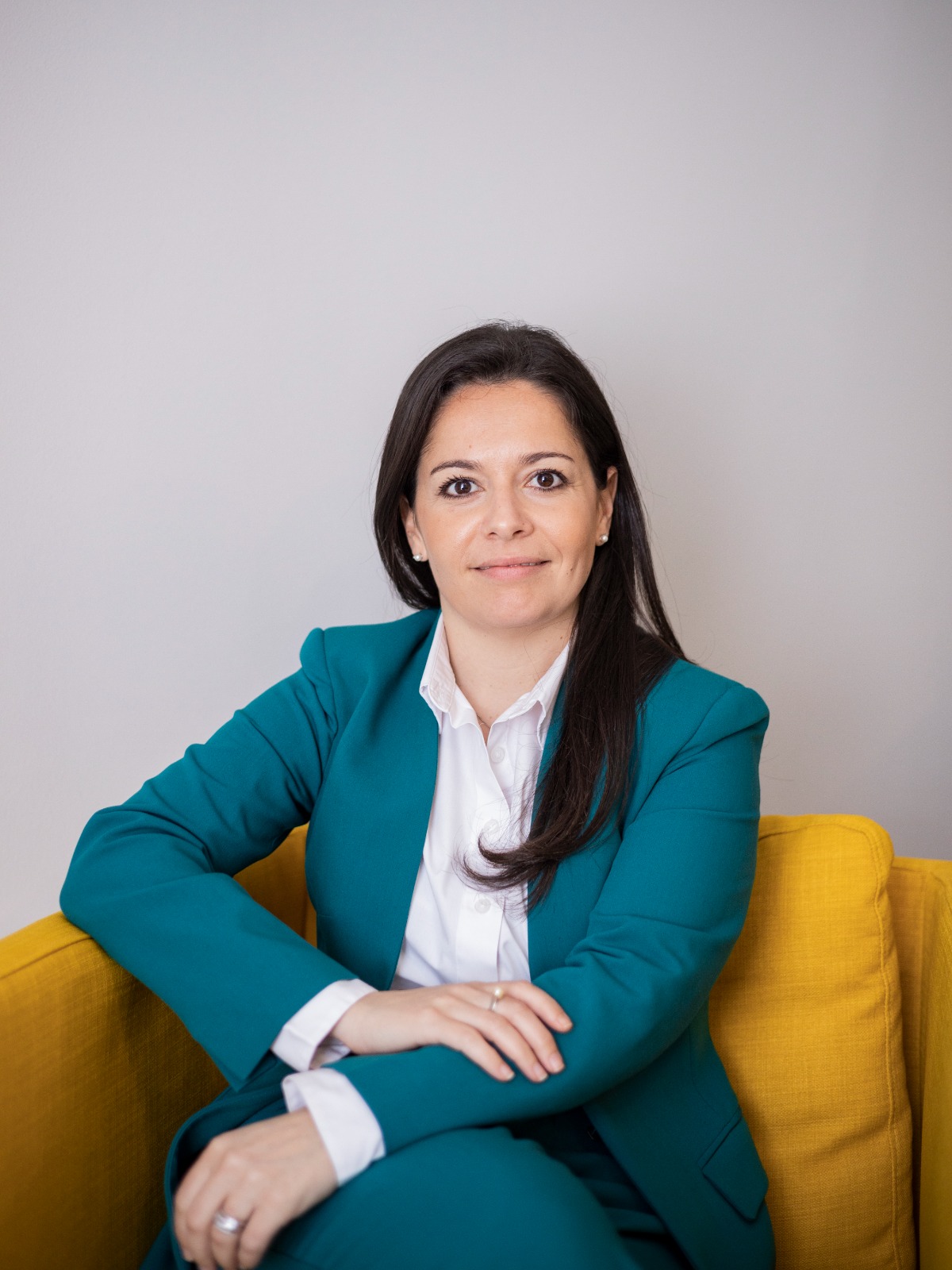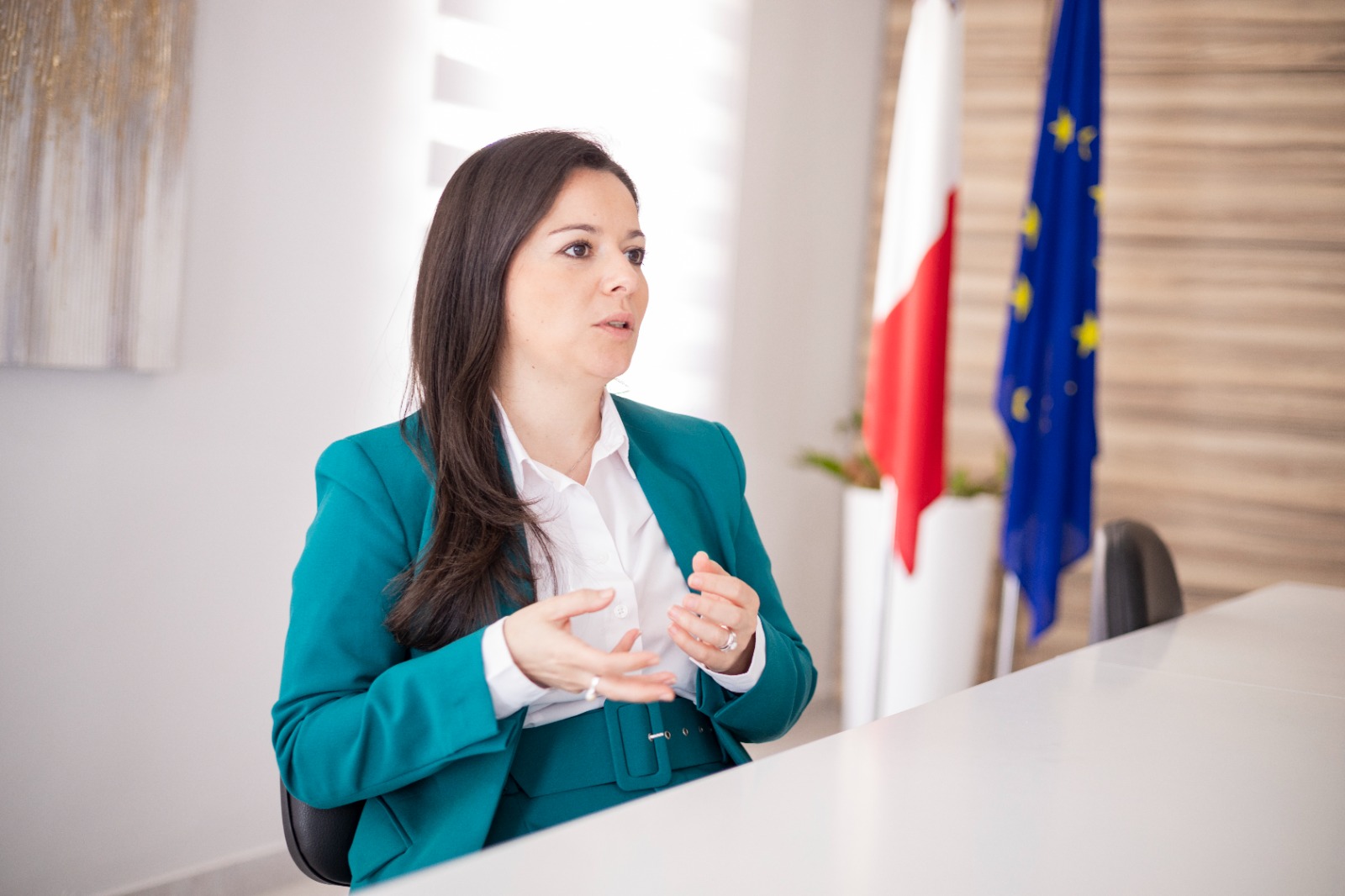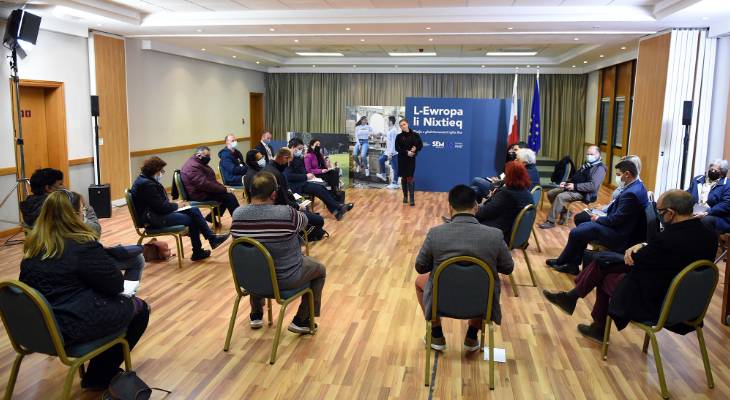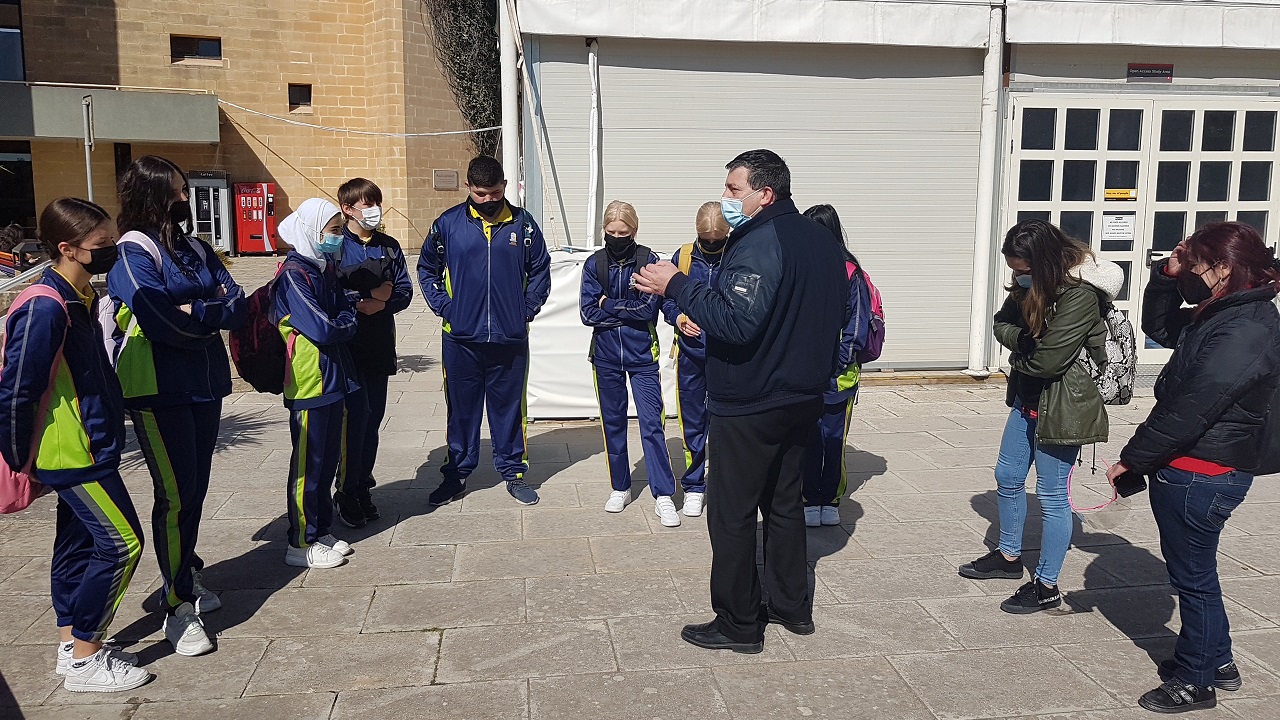Last Sunday, Malta celebrated its 18th birthday since joining the now 27-nation bloc. On 1st May 2004, together with Cyprus, the Czech Republic, Estonia, Hungary, Latvia, Lithuania, Poland, Slovakia and Slovenia, Malta joined the EU in what is considered to be the biggest enlargement ever.
18 years on, and as the continent is about to celebrate Europe Day on 9th May, WhosWho.mt sat down with the CEO of Servizzi Ewropej f'Malta (SEM), Mandy Falzon, to discuss how the agency continues to build bridges between the country’s citizens, and the work and funding opportunities that come from the highly complex body of institutions that we know as the EU. We also discuss the mammoth issues facing the continent, from Brexit, COVID and last but certainly not least, the war in Ukraine.
Ms Falzon has been with the agency, formerly known as MEUSAC, for almost 10 years. She first joined in 2013 as an executive dealing with EU funding and progressed up the ladder until her appointment as CEO. Working with the EU-focused agency for so long, she does not hesitate when asked a diverse range of questions about long-standing criticism that the bloc continues to face.
Taking stock of where the EU is today, from a big-picture perspective, she says that while the last two years have been dominated by the pandemic, all eyes have now shifted on Ukraine. With the conflict entering its third month, Ms Falzon remarks that she has never seen the EU so united.

SEM CEO Mandy Falzon / Photo by Inigo Taylor
“When the war broke out and Russia invaded Ukraine, you immediately saw a united front across the continent. We saw that whatever happens, the EU stands together.
“I think for the first time in many of our lives, we have a war literally at the periphery of Europe. Before, where we used to speak of peace on the European continent, we can no longer speak of this, due to the decision of one person [Russian President Vladimir Putin]. It really destabilised the whole concept of peace and stopped many from taking this concept for granted,” she says.
Onto the EU’s value-system, where it champions freedom, democracy and transparency, Ms Falzon says the war in Ukraine has also been an eye-opener in terms of people realising they shouldn’t take such values and principles for granted.
“Over the years, the freedoms and values that the EU upholds have been dismissed as abstract and intangible concepts. Then, when you see the events in Ukraine unfolding, the penny drops, and people understand that they should not take the EU’s value system for granted.”
Asked whether she believes EU citizens may be more appreciative of being part of a European group of nations now that there is conflict knocking on the continent’s door, she replies in the affirmative, adding that from what she has seen, she believes citizens are taking into consideration that far more can be achieved when acting as a group.

SEM CEO Mandy Falzon / Photo by Inigo Taylor
One of the biggest criticisms the EU tends to face from citizens of Malta is that the country has no real seat at the negotiating table, as it is the smallest Member State with not enough clout to influence decisions. While Roberta Metsola’s position as President of the European Parliament alone pours cold water on such a criticism, Ms Falzon adds that over the years, the country has proved that when and where it matters, it does have a voice.
“When it comes to the EU, it’s about working with other countries with similar interests. It’s this whole concept of negotiating…. I think it’s a bit of a misnomer that because we are a smaller country we do not have a voice.”
An area of criticism which the CEO tends to agree with is the one-sized-fits-all approach at EU level, where rules and regulations are put in place for the entire bloc, when the realities of the individual Member States might be very different.
“This criticism has constantly been repeated, and even as a Member State, we have always tried to emphasise that what applies to Germany does not necessarily mean it is viable for Malta. I think in order for there to be a greater sense of belonging, there has to be given more attention to this concept – that it’s not a case of one-size-fits all. The EU now has to look at this in terms of projecting the future, especially if we want to avoid another Brexit.”
SEM: its goals, functions and the three pillars
SEM takes on a dual role of information and engagement on EU initiatives, policies and laws, as well as support to secure and manage EU funds for dedicated projects.
Ms Falzon explains that SEM takes on these responsibilities via three pillars: inform, support and engage.

SEM Future of Europe Conference / DOI Photo - Clifton Fenech
On the area of information, Ms Falzon explains that SEM embarks on active information campaigns on proposed initiatives and laws being undertaken by the EU, via traditional media as well as social media, in a constant battle against misinformation and ‘alternative’ facts.
On the pillar of engagement, she says the agency has tweaked its approach to encourage two-way communication. “We are engaging people with information on what’s happening, and we are also interested to know what people think about specific matters.”
Providing examples of the agency’s engagement practices, Ms Falzon shares that the Conference on the Future of Europe is officially coming to an end, and throughout the past months SEM has organised several dialogues and debates with citizens from all walks of life to give their views on what the future of Europe means to them.
She also stresses the importance of engaging people in a way that is meaningful to them. “It is useless to speak in technical jargon to the man on the street. They want to know how they will be impacted or effected, and how developments coming out of the EU will impact them personally.”
Lastly, on the pillar of support, this is where EU funds come in. Here, SEM provides support for organisations, primarily non-profits, local councils, Ministries or Government departments and other organisations to apply for EU funded projects.
Here, she shares that since 2021, when the agency rebranded from MEUSAC to SEM, it also introduced a new element to this pillar: the support of organisations to manage the implementation of EU funded projects.
“From our experience, once an organisation gets the funding, they are left alone to navigate the requirements of fund management, so we are now helping them with this. The world of project management and procurement can be quite daunting, so we felt the agency should be providing support in this regard.”

SEM engagement session with school children
“When we speak of EU funds let’s never forget that they are taxpayer’s money. There must be a structure or system in which there is transparency and accountability of how this money is spent, otherwise it would go against the whole concept of EU funds.”
SEM is the only agency in the EU providing a dual role of information as well as EU funding support free of charge. In the area of support, this is usually provided in Europe by the private sector against hefty fees.
Therefore, local organisations are in a unique position to take advantage of the ‘one-stop-shop’ that is SEM, filled with professionals who have worked at the agency for some time, and have invaluable knowledge of the intricacies behind the EU’s complex processes.
Main Image:
